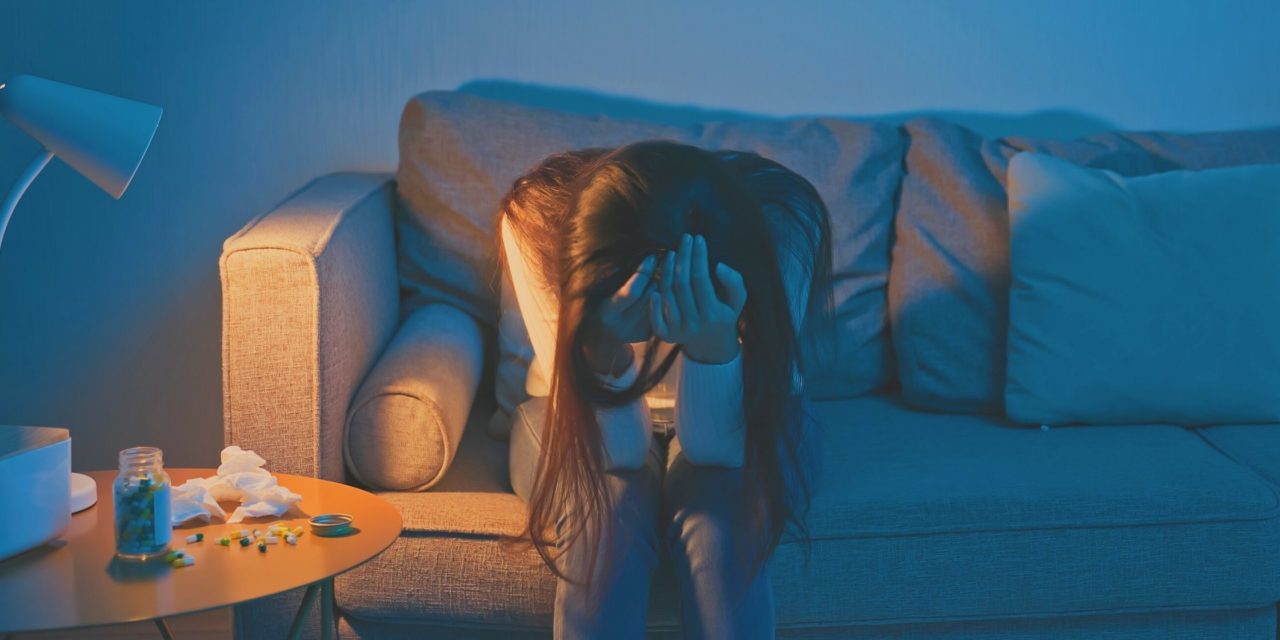It seems that there’s no limit to the awful consequences of substance abuse: financial ruin, damaged relationships, addiction, overdose. However, there’s yet another outcome and it’s one that often gets overlooked, mental illness. Over 8.1 million Americans have both a form of mental illness and a substance use disorder (that’s nearly 20% of the population). One of the most severe is known as drug-induced psychosis. Keep reading to learn more about what it is, how to recognize the signs, and what causes it.
What Is Drug-Induced Psychosis?
Psychosis is a condition of the mind that affects the way the brain processes information. It causes severe impairment of a person’s thoughts and perceptions, rendering a person incapable of distinguishing what’s real and what isn’t, a.k.a. losing touch with reality. Given how heavily we rely on our perceptions for our interactions with the world, you can imagine how debilitating this condition can be.
Although drug-induced psychosis is virtually identical to that of a non-drug-related psychotic break or episode, the primary reason for the differentiation is how these conditions resolve themselves. If drugs are the cause of the psychological abnormality, the condition usually improves on its own without additional or specialized attention once substance use has ceased. There is no cure for non-drug-related psychosis and it may require a lifetime of medication as well as psychological treatment.
Symptoms
Drug-induced psychosis has all of the same symptoms as primary psychosis. This mental disorder is characterized by hallucinations (hearing, seeing, or feeling things that aren’t there) and delusions (false beliefs such as thinking you’re being followed or that you are royalty). As a result, these individuals often act in ways that are wildly inappropriate for the setting or situation and their speech may be incoherent and seemingly nonsensical. In addition to these tell-tale signs, there are other, sometimes subtle, signs of psychosis. These include:
- Lack of self-care or hygiene
- Distancing oneself from family and friends
- Spending more time alone than usual
- Difficulty reading, thinking clearly or paying attention
- Unreasonable strong emotions or having no emotions at all
Many describe the experience of a psychotic break as a terrifying one. Individuals who experience psychotic episodes find themselves unable to control their thoughts and are often gripped by unshakable sensations of paranoia or anxiety. Some feel violent urges, some don’t. While some may realize deep down in the back of their minds that their false beliefs or sensations aren’t real, they still may find themselves unable to control their behavior or thoughts.
What Causes Drug-Induced Psychosis?
As the name implies, drug-induced psychosis is when substance use has been directly attributed as the reason for this psychiatric disorder. However, psychosis is a symptom of mental illness, rather than an illness itself. If present, it could mean the drug user could be suffering from schizophrenia, bipolar disorder, or severe depression.
Why Drugs Cause Mental Illness
The same mechanisms that allow drugs to cause their highs are the same ones that cause mental illness. When consumed, drugs can cause certain neurotransmitters such as serotonin, dopamine, or GABA to flood the body at unnaturally high levels. Other times (and sometimes simultaneously), drugs can also make the receptors for those specific neurotransmitters extra sensitive. Depending on which neurotransmitters are affected, drugs can result in intense feelings of euphoria, alertness, relaxation, or sedation.
However, do this too often (or use too strong a dosage) and the effects of drug use can cause long-lasting neurological imbalances. These imbalances create the conditions of naturally-occurring mental illness. As such, this risk isn’t limited to those with drug addiction. Mental illness and psychosis can occur among first-time users as well.
It’s quite common for drug use to result in mild mental illness such as anxiety or depression (which can still be plenty debilitating). The development of serious mental illness is much rarer, but it’s far from an uncommon experience. Take for example how 15% of marijuana users experience psychotic-like symptoms.
Which Drugs Cause Psychosis?
Both depressants and stimulants have the potential to cause psychotic symptoms as well as the development of a serious mental illness. Such symptoms can be triggered by:
- Alcohol
- Amphetamine
- Cannabis
- Cocaine
- Ketamine
- LSD
- MDMA
- Mephedrone
- Methamphetamine
- Opioids
- Psilocybin
- Prescription drugs
The most frightening aspect of drug-induced psychosis is that it can happen to anyone, whether or not they have a genetic predisposition to mental illness. Individuals who are prone to mental health issues, or are currently diagnosed with one, face the greatest risk, but no drug user can know if they are immune to this severe side effect. If recognized and treated early enough, most instances of drug-induced psychosis will go away once drug use stops without resulting in long-term neurological impairment. As such, getting addiction treatment as soon as possible is the best means to protect your mental health. To get started, you can find a rehab near you with our state and city-specific directory.

